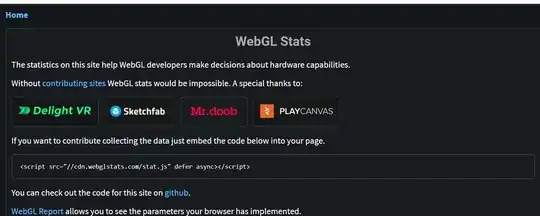I have some javascript/webgl code. I want to have some idea of whether it will work for someone with a different browser/machine/gpu.
This is difficult, because there's so much diversity in support for features. For example, on my machines, I can pass GL.FLOAT to readPixels, but I know that really I should only use GL.UNSIGNED_BYTE. Another example is that, when webgl compiles a fragment shader at runtime, one of my machines will accept vec4(1, 0, 0, 0) while the other will complain that implicit casts from int to float aren't allowed. I even have some code that works on my phone in chrome, but not on my phone in firefox, for no discernible reason.
How can I test if my webgl code conforms to the standard? How can I estimate how many users it will work for in practice?
Maybe there exist interpreters with minimal feature sets that run the code, and if it works in the interpreter you can be sure it will work for most users? Or maybe there are services that run your code on many machines? Maybe a particular old phone is a good 'minimal support' candidate for testing?
(I tried using SauceLabs to run it on a variety of machines, but they don't support webgl so that's a bust. Also there's always the fallback of just waiting for people to complain...)
